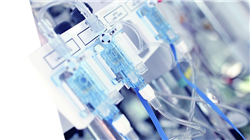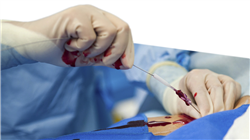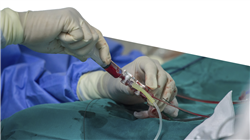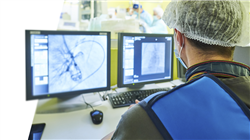University certificate
The world's largest faculty of medicine”
Why study at TECH?
Enroll in this program now! With TECH's 100% online methodology you will master the technological and therapeutic innovations that enhance Interventional Procedures in Carotid and Vertebral Arteries"

Spontaneous Carotid and Vertebral Dissection is considered a critical condition because of its incidence, generally common in young and middle-aged adults, between 30 and 50 years old. Although there is no clear cause for this pathology, its link to minor neck trauma, infections or connective tissue conditions such as Marfan syndrome or Ehlers-Danlos syndrome has been studied. Given the complexities in determining its origin and the particularity that it affects people who, because of their age group, should be healthy, its successful management has become a priority for Angiology Units in most hospital settings.
In order to offer surgeons a complete update on the procedures to intervene this and other related pathologies, TECH has designed this comprehensive Postgraduate certificate. The program includes the most effective therapeutic strategies for Spontaneous Dissection such as acute management and long-term follow-up. In addition, this academic itinerary also covers the most innovative imaging tools for diagnosis, as well as minimally invasive techniques for interventional Atherosclerotic Occlusive Disease and Fibromuscular Dysplasia. Also, the syllabus dissects the most disruptive therapies to address Cerebrovascular Accident and cerebral venous thrombosis.
In turn, the entire university program has a 100% online study format. In other words, physicians can access the contents at any time or place, without having to travel to an on-site center, and to complete their specialization they only need a device connected to the Internet. They will not have to abandon their other work obligations at any time, since the program distinguishes itself by providing them with autonomy, without fixed schedules. On the other hand, the TECH methodology is another important success of the program. With the inclusion of the Relearning system or the analysis of real cases, specialists develop a holistic update, focused on the demands of their professional area.
Don't miss this academic opportunity where you will get up to date on Interventional Procedures in Carotid Body Tumors"
This Postgraduate certificate in Interventional Procedures in Carotid and Vertebral Arteries contains the most complete and up-to-date scientific program on the market. The most important features include:
- The development of case studies presented by experts in Angiology and Vascular Surgery
- The graphic, schematic and eminently practical contents with which it is conceived gather scientific and practical information on those disciplines that are indispensable for professional practice
- Practical exercises where self-assessment can be used to improve learning.
- Its special emphasis on innovative methodologies
- Theoretical lessons, questions to the expert, debate forums on controversial topics, and individual reflection assignments
- Content that is accessible from any fixed or portable device with an Internet connection
Delve into the key and up-to-date methods for the management of Vasculitis, Spontaneous Dissection and Traumatic Injuries with TECH, the world's best digital university according to Forbes Magazine"
The program includes in its teaching staff, professionals from the sector who bring to this specialization the experience of their work, in addition to recognized specialists of reference societies and prestigious universities.
The multimedia content, developed with the latest educational technology, will provide the professional with situated and contextual learning, i.e., a simulated environment that will provide immersive education programmed to learn in real situations.
This program is designed around Problem-Based Learning, whereby the professional must try to solve the different professional practice situations that arise during the course. For this purpose, students will be assisted by an innovative interactive video system created by renowned and experienced experts.
Become an expert in the interpretation of normal or pathological findings from the techniques of Imaging for Evaluation of Carotid and Vertebral Arteries included in this program"

The Relearning system, of which TECH is a pioneer, will allow you to master concepts in a theoretical and practical way without having to memorize or invest long hours of study"
Syllabus
This academic itinerary addresses crucial aspects about the management of cerebral vascular pathologies, emphasizing diagnostic techniques, evaluation and interpretation of normal and pathological findings. At the same time, it delves into interventional procedures for conditions such as Fibromuscular Dysplasia, Vasculitis, Spontaneous Carotid and Vertebral Dissection, among others. These exhaustive contents can be consulted 100% in a very complete Virtual Campus, accessible 24 hours a day, where explanatory videos, interactive summaries and many more multimedia resources are also available.

Explanatory videos, interactive summaries, infographics and other integrated multimedia resources will be included in the Virtual Campus of this comprehensive program for your integral specialization"
Module 1. Interventional Procedures in Carotid and Vertebral Arteries
1.1. Key Collateral Pathways in the Cerebral Circulation
1.1.1. Collateral Vascularization of the Carotid and Vertebral Arteries
1.1.2. Intracranial and Extracranial Collateral Circulation
1.1.3. Clinical Significance in Case of Arterial Occlusion
1.2. Imaging in the Diagnosis and Follow-Up of Vascular Diseases
1.2.1. Imaging Techniques for Evaluation of the Carotid and Vertebral Arteries
1.2.2. Interpretation of Imaging Results: Normal and Pathological Findings
1.2.3. Imaging in the Diagnosis and Follow-Up of Vascular Diseases
1.3. Interventional Procedures in Atherosclerotic Occlusive Disease
1.3.1. Pathogenesis and Associated Risk Factors
1.3.2. Clinical Manifestations and Diagnostic Methods
1.3.3. Treatment Options and Prevention of Complications
1.4. Interventional Procedures in Fibromuscular Dysplasia
1.4.1. Imaging Findings
1.4.2. Differential Diagnosis with Other Vascular Diseases
1.4.3. Therapeutic and Prognostic Management of Fibromuscular Dysplasia
1.5. Interventional Procedures in Vasculitis
1.5.1. Vasculitis in Carotid and Vertebral Arteries
1.5.2. Clinical Manifestations and Differential Diagnosis
1.5.3. Immunosuppressive Treatment and Monitoring
1.6. Interventional Procedures in Spontaneous Carotid and Vertebral Dissection
1.6.1. Pathophysiologic Mechanisms and Predisposing Factors
1.6.2. Diagnostic Methods
1.6.3. Acute Management and Long-Term Follow-Up
1.7. Interventional Procedures in Traumatic Lesions of the Carotid and Vertebral Arteries
1.7.1. Traumatic Lesions of the Carotid and Vertebral Arteries
1.7.2. Initial Evaluation and Diagnostic Imaging
1.7.3. Treatment Strategies and Prevention of Complications
1.8. Interventional Procedures in Carotid Body Tumors
1.8.1. Diagnostic Imaging
1.8.2. Multidisciplinary Treatment: Surgical, Radiotherapy and Chemotherapy Options
1.8.3. Prognosis and Long-Term Follow-Up
1.9. Stroke Therapy
1.9.1. Acute Approach to Thrombolytic Therapy
1.9.2. Endovascular Revascularization: Techniques
1.9.3. Acute Phase Management and Postictus Rehabilitation
1.10. Interventional Procedures in Cerebral Venous Thrombosis
1.10.1. Etiology and Associated Risk Factors of Cerebral Vein Thrombosis
1.10.2. Clinical Manifestations and Diagnosis of Cerebral Vein Thrombosis
1.10.3. Treatment and Management. Anticoagulant and Thrombolytic Therapy: Considerations

Join this academic itinerary NOW and specialize in Interventional Procedures in Carotid and Vertebral Arteries with a faculty composed of the best experts: TECH’s teachers"
Postgraduate Certificate in Interventional Procedures in Carotid and Vertebral Arteries
Discover the most advanced techniques in the treatment of carotid and vertebral arteries with the Postgraduate Certificate offered by TECH Global University. This exceptional program offers you the opportunity to acquire specialized skills and up-to-date knowledge in the field of vascular interventional procedures, all from the comfort of your home with our online classes. As an industry leader, we are committed to providing you with a quality education that fits your needs and schedule. With our Postgraduate Certificate, you will have access to a state-of-the-art virtual learning platform, where you can access course content, participate in online discussions and complete assessments, all at your own pace and according to your own schedule. Our program is designed to provide you with an in-depth understanding of carotid and vertebral artery interventional procedures, including angioplasty, stenting, embolization and more.
Get qualified by the world's best School of Medicine
One of the key advantages of our course is the opportunity to learn from experts in the field through interactive online classes. Our instructors are experienced professionals who will guide you through the course material, answer your questions and provide personalized feedback to help you achieve your educational goals. Upon successful completion of the Postgraduate Certificate, you will be prepared to meet the challenges and seize the opportunities in this ever-evolving field. Whether you want to advance your current career in the field of vascular medicine, pursue new job opportunities or simply expand your knowledge, our program will provide you with the skills and confidence you need to succeed. Take the opportunity to advance your career and make a difference in the field of vascular interventional medicine. Enroll today in this Postgraduate Certificate taught by the best medical school in the world and begin your journey to a rewarding and successful career!







